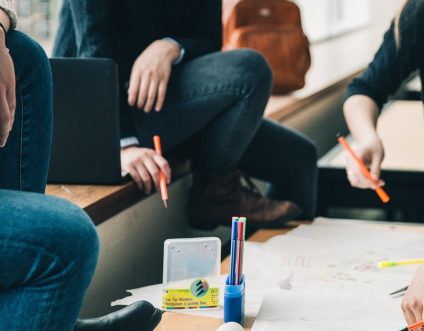About
Student-centred learning and learning ergonomics are becoming important aspects of all types of educational institutions. By acknowledging the central pedagogical and didactic position of educational institutions in separate countries, the project partners wish to acknowledge their roles as adding to the ‘making’ of citizens through higher education, cultural awareness. The process of making graduates and citizens is an experimental continuum, allowing universities to provide conditions for associational activities as well as perform a role of cultural custodians by maintaining and revitalising cultural inheritances of the political community, but also giving it direction. It is important to realise that higher education institutions should not aim to undertake such activities on their own, rather they should seek assistance from local and regional experts in the field of pedagogics, urban methodology and cultural activities.
While student-centred learning is somewhat difficult to define in terms of its methodology and explicit content, which is to be included, it is the key to adapting to a more diverse student population and changing needs in terms of how education is conveyed. In order to accommodate these ambitions, a re-examination of traditional pedagogy, didactics and scholarship, including ways of how and where the learning and teaching processes take place, is needed.


Key outputs of the project are:
1. Mapping of existing participatory practices will be designed in order to provide a clear overview of the participatory practices, in terms of good practices for the repurposing of educational buildings and spaces. The lead partner, when it comes to the intellectual output will identify, group and identify the afore-mentioned good practices.
2. Model for repurposing of educational buildings and spaces in HE institutions and non-formal education organisations based on the mapping of existing participatory practices, which will be the first intellectual output of the project and will serve as a guideline for the model and piloting schemes, which will be established as the second intellectual outcome.
3. Manual for the implementation of the model will be prepared in accordance with the outcomes of the mapping of current participatory practices and in cooperation with the model for repurposing.
4. Policy recommendations for the public authorities for participatory processes in terms of repurposing of public buildings and civic spaces will be developed in order to advocate for more cooperation between policy, civic and educational sector in order to enhance urban development and participatory processes in cities.
The project will be implemented by 6 partners from 5 countries: Slovenia (University of Ljubljana), Lithuania (MB HOMO EMINENS, VDU), Croatia (Culture Hub), Poland (UBC) and Belgium (OTB).
The project is co-financed by the Erasmus+ KA2 Programme of the European Commission.
